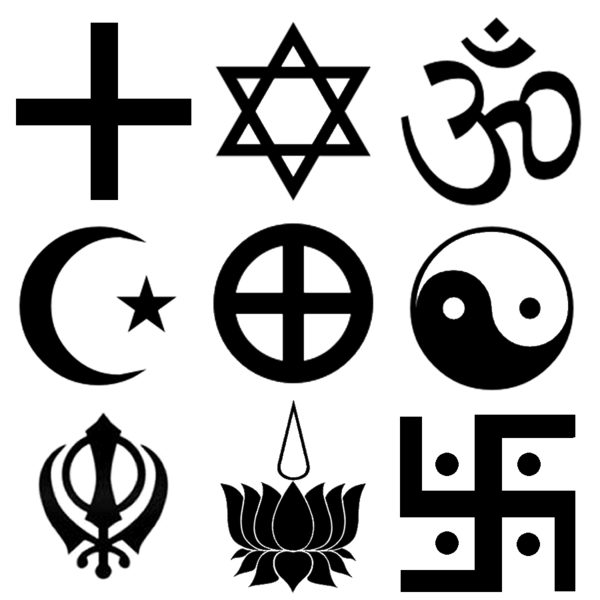Religion is a profound aspect of identity for many people, shaping their lives, cultures, and communities. Among the Palestinians, this intricate tapestry of faith and heritage is woven from various religious traditions, with Islam and Christianity standing out as the most prominent. As one delves into the religious landscape of this region, it reveals not only a rich historical narrative but also a contemporary interplay of faith that transcends mere belief, anchoring the Palestinian identity in both secular and sacred realms.
The predominant religion among Palestinians is Islam, which significantly influences the cultural and social life of those residing in the territories of the West Bank, Gaza Strip, and even among the diaspora. Sunni Islam, in its diverse interpretations, continues to be the cornerstone of Palestinian society. The adherence to Islamic principles infuses everyday life with a sense of community and shared purpose. Traditions such as Ramadan, which emphasizes fasting and spiritual reflection, become collective experiences that bind families and neighborhoods together. The intricate practices during Eid celebrations catalyze communal solidarity, while the call to prayer punctuates the daily rhythm, acting as a spiritual compass for many.
Yet, it is essential to recognize that Christianity also forms an integral part of the Palestinian identity. The historical roots of Christianity in this land run deep, tracing back to the very foundations of the faith, intertwined with the narratives of Jesus Christ’s life and teachings. The significance of sites such as Bethlehem, the birthplace of Jesus, and Nazareth, where he was raised, cannot be overstated. For Palestinian Christians, these locations are more than just historical landmarks; they are emblematic of faith, resilience, and a perpetual lineage that unites them with believers worldwide.
The Christian population, while a minority in the broader Palestinian landscape, has a prominent presence in cities like Bethlehem, Jerusalem, and Nazareth. The coexistence of various denominations—Orthodox, Roman Catholic, and Protestant—mirrors the rich diversity within Palestinian Christianity. This multiplicity accentuates a unique narrative of faith that is both a source of strength and a site of contention, as the demographic changes in these areas are influenced by various political and social pressures.
One cannot overlook the profound connection between faith and heritage among the Palestinians. The intertwining of religious observance and cultural tradition creates a unique synergy that enriches the Palestinian experience. Festivals, rituals, and local customs often reflect a broader spiritual heritage. For example, the annual celebration of Christmas in Bethlehem is not just a religious observance; it embodies a message of hope and continuity for Palestinian Christians, even as they navigate the complexities of their socio-political context. The festive atmosphere, with its processions and communal gatherings, serves as a reminder of resilience amidst adversity.
The coexistence of Muslims and Christians within the Palestinian territories illustrates a narrative that bespeaks a shared history marked by interdependence and mutual respect. This is particularly poignant in urban settings where both communities have coalesced, forming a mosaic of shared spaces, festivals, and familial ties. Marriages between individuals of different faiths, while not without challenges, are often celebrated as a testament to the possibility of harmony amidst diversity.
However, it is crucial to address the contemporary realities that challenge this religious tapestry. The ongoing Israeli-Palestinian conflict has precipitated a crisis of identity and belonging for many Palestinians, regardless of their faith. For Christians, the exodus from their ancestral homes has raised existential concerns. Churches once filled with congregants now find themselves less populated, as many seek opportunities abroad or face the pressures of living amidst a turbulent political landscape. The narratives of displacement often resonate profoundly within the Christian community, invoking a shared yearning for peace, justice, and recognition.
This complex interplay of faith and heritage is further illustrated through the lens of religious sites that hold significance for both Muslims and Christians alike. The Al-Aqsa Mosque for Muslims and the Church of the Holy Sepulchre for Christians exemplify not only the spiritual reverence associated with these places but also the geopolitical tensions that surround them. These sites, while revered by different faiths, also serve as focal points for broader discussions about identity, belonging, and the struggle for peace.
In reflecting upon the religious landscape of the Palestinians, one must acknowledge the overarching narrative of resilience. Both Islam and Christianity, with their profound teachings of love, compassion, and peace, provide a framework through which individuals navigate the challenges of their existence. The words of Jesus, who called for love and reconciliation, resonate deeply in the hearts of Palestinian Christians striving to maintain their cultural and spiritual legacies.
Lastly, the future of Palestinian faith traditions hinges not only on the preservation of cultural practices but also on the acknowledgment of shared heritage among various communities. To foster mutual respect and understanding will require a concerted effort, not merely from local leaders but also from the global community that holds all faiths dear. Recognizing that the Palestinian identity is multifaceted—enriched by both Islamic and Christian traditions—can serve as a foundation for dialogue and peace-going forward.
In conclusion, exploring the question of what religion the Palestinians embrace unveils a multifaceted narrative that intertwines matters of faith, cultural heritage, and shared destiny. It is a narrative colored by the tenacity of belief in the face of adversity, and a testament to the profound possibilities that exist when communities come together, celebrate their differences, and seek a common ground rooted in love and respect.



